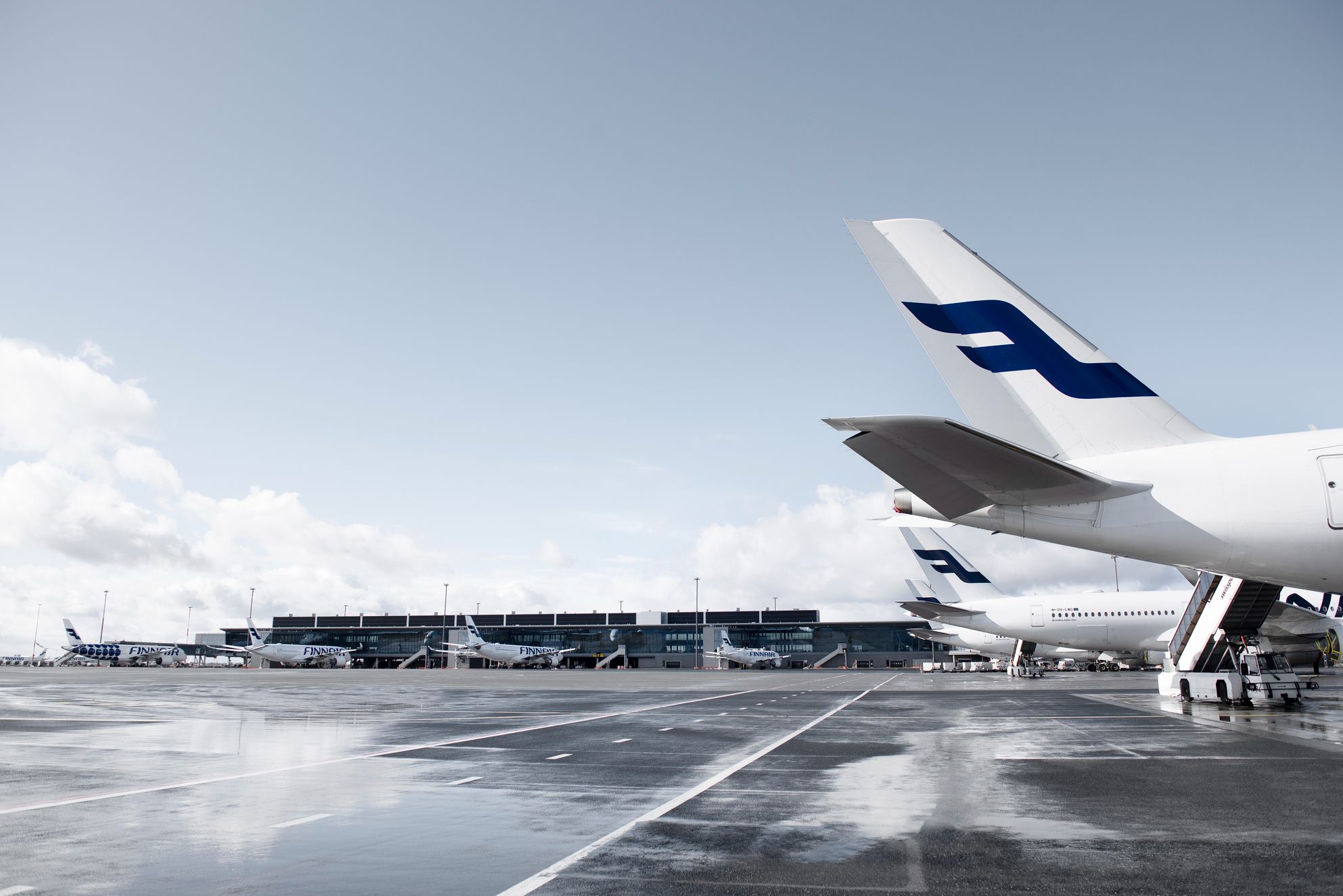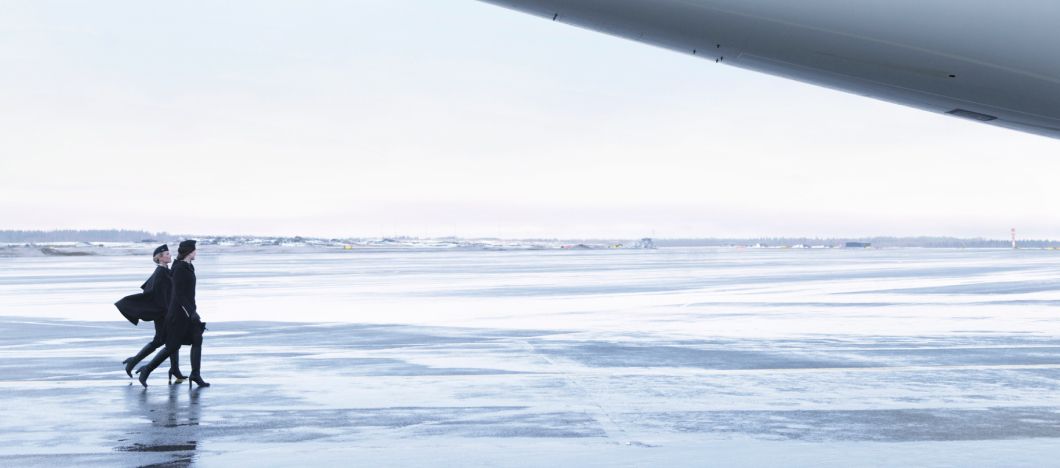Operating environment
The airline industry is characterized by continued growth in passenger kilometres, shifting focus of growth to the Asia-Pacific region as well as intense competition.
Expanding economies and global population, growing middle class, improved infrastructure and traffic stimulation from airlines offering new affordable flights all contribute to traffic growth in the airline industry1. China and India, and more generally Asia-Pacific as a whole, will power growth, further shifting aviation’s centre of gravity’ towards Asia.

Based on IATA statistics, global passenger numbers are projected to increase at an average annual rate of 3.8%, which would more than double air travel from 2023 levels by 2043
With the growth of the industry, competitors have not just changed but also multiplied. Finnair’s competitive landscape can be roughly divided into two parts: short-haul traffic in Europe and long-haul traffic between Asia and Europe as well as North America and Europe. In short haul traffic, airlines with the lowest cost structures typically have the strongest competitive positions, and competition is mainly driven by price. On the long-haul traffic scene, the significance of a comprehensive network, comfort of travel, customer service and smooth transfers is highlighted. Network and low-cost carriers have started revising their operating models with a convergence trend, which results in more competition.
Intense competition has led to more consolidation, alliances and joint ventures in the industry, with the aim of improving capacity discipline and profitability. Just as the role of alliances evolves, individual airlines also pursue cooperation opportunities outside their respective alliances to strengthen their positions.
Megatrends
Finnair's operations are particularly affected by four megatrends, which are the gradual transition of economic and political power towards Asia, urbanization, technological development and sustainability.
Transition of economic and political power towards Asia
The gradual shift in economic and political focus from the United States and Europe to the growth economies, and Asia in particular, is the strongest of the megatrends affecting the aviation industry. Asian corporations are becoming globalised and their significance on the world market is growing. The middle class is growing rapidly in many Asian countries.
Asian travel will increase, and competition will intensify, as Asian airlines expand their operations to intercontinental flights. At the same time, airlines and governments will also have to negotiate for more traffic rights. Asian customers determine the expected standard of quality for service and products, and non-Asian airlines must increase their understanding of Asian culture and customers.
Urbanisation
Migration flows from rural areas to cities continue to accelerate, particularly in China and other developing countries. In Asia in particular, the number of cities with more than five million inhabitants will grow, as will the number of connections between such cities. New markets will be created for airlines as traffic between these megacities grows. Competition will intensify as regional airlines begin to operate on these routes.
Technological progress
Technological progress is leading to changes in purchasing behaviour, the comparability of prices and services online, and immediate feedback. Digitalisation is a natural part of a company’s operations, and it creates service development opportunities. Consumers want and expect Wi-Fi network connections everywhere they go. Social media spreads news rapidly and requires businesses to react quickly. Airlines must anticipate changes, adapt to them and provide opportunities for buying, using services and sending feedback online. Consumers want internet access before, during and after their flights. They increasingly want digital entertainment services during flights. More advanced customer identification will also allow airlines to offer tailored services and a personalised customer experience. However, different groups of customers must be considered in the digital development phases, and the availability of services for everyone must be ensured.
Increasing significance of sustainability
Consumers, political decision-makers and other stakeholders require businesses to operate more responsibly and transparently. Regulation and reporting obligations will increase, and businesses are required to be more diligent in monitoring the ethical dimensions of their supply chains. Consumers monitor the responsibility of a company’s operations and give feedback on social media. The airline industry will face stricter regulations on emissions and noise, with increased regulations resulting in added costs such as tax-like payments. Airlines must increasingly cooperate on issues related to safety, emissions, noise, accessibility and other passenger rights as well as equality.
A changing operating environment
The airline business is cyclical by nature and heavily influenced by external factors. Typically, revenues are high during economic upswings and considerably lower during periods of economic downturn. For individual airlines, the yield also fluctuates on the basis of the holiday and business seasons.
Airlines must make decisions on significant fleet investments years before price-and-quality conscious travelers make their purchase decisions. Aircraft delivery times may take years, which means that airlines must plan their business for the long term, often at least 10 years ahead, especially in long-haul traffic. This includes, among other things, a plan for future destinations and network, the type of aircraft required and the regulations they must comply with. It is often very difficult to foresee how the market will change between the order and delivery of an aircraft.
With high competition, low margins of the airline business, high fixed costs and the high capital expenditure needed to operate an airline, it is crucial to optimise all aspects of business operations to succeed. It is also crucial to build resilience and flexibility for unexpected changes in the market environment.
Investor relations
Erkka Salonen
Head of Group Accounting,
Tax and Investor Relations
Tel. +358 9 818 5101
Emilia Rannanniemi
Senior Investor Relations Manager
Tel. +358 9 818 420
Follow us
Other sites
Terms and policies
© Finnair 2025



